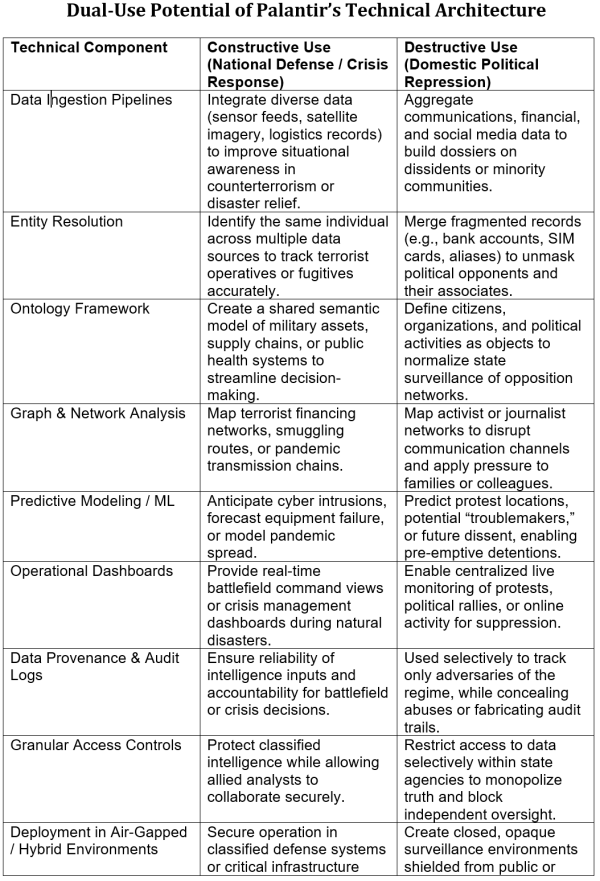Updated for tax year 2025.
Being a small business owner comes with some unique challenges — including figuring out how small business taxes work.
The good news? We’re here to spill the essential small business tax deduction secrets to help you lower your tax liability and keep that hard-earned money in your pocket.
Small business tax write-offs for tax year 2025
As a small business owner of a sole proprietorship, partnership, or LLC, you may be able to deduct many business-related expenses that you would not be able to deduct if you were just an employee. These deductions don’t stop at simply reducing your taxable income either. When you take small business deductions for taxes, you also reduce your income, which is subject to self-employment tax.
Reducing your adjusted gross income (AGI) may also help lower your small business taxes in other ways. For example, a lower AGI may mean you qualify for tax credits for educational expenses or other small business tax perks.
Ready to learn how much you could save? Let’s look at some small business tax deductions you may qualify for this year.
1. Self-employed health insurance deduction
If you have income from self-employment and buy your own health insurance, you may qualify to deduct your health insurance premiums as an adjustment from income. To qualify for the self-employed health insurance deduction, you must be ineligible for health insurance benefits through an employer — your own or your spouse’s. The coverage can be for you, your spouse, and your dependents. This tax deduction cannot be more than your business’s net income.
2. Business startup costs
If you’re just starting out, the IRS offers some valuable tax breaks for new small business owners.
If your startup costs total $50k or less, you can claim the business startup deduction, which allows you to deduct up to $5,000 of business startup costs and $5,000 of organizational costs. If your startup costs exceed $50k, you can still choose to amortize your startup costs over 15 years, meaning you deduct a fixed amount of the expenses each year.
Plus, if you took out a business loan, you may deduct any loan fees or professional fees you had to pay to secure the loan. And if you paid to have some shiny new business cards made, you can deduct the cost for those as well!
3. Internet and other service fees
The monthly fees you pay for internet service can really add up. Just keeping your computer running can sometimes come at a cost if you experience hardware problems. You may also be paying subscriptions for virus and malware control, professional references, and software subscriptions to keep your business activities running smoothly.
Thankfully, internet and related service costs are all deductible for small businesses. When filing your taxes this year, take the time to look for all internet, subscription, and other service fees you pay that may entitle you to a deduction this tax season.
4. Phone service tax deductions
If you have separate phones for business and personal use, regardless of whether they are landlines or cell phones, you can take full deductions for the lines you use for your business.
Unfortunately, if you only have one landline phone for both business and personal use, the Internal Revenue Service does not allow you to deduct its cost. However, you can still deduct any long-distance charges related to your business.
If you have a second line or cell phone that you use for both business and personal calls, you can deduct a percentage of the cost of your phone service. For example, if you use your cell phone for business purposes 75% of the time and personal calls for the other 25%, you can claim a deduction for 75% of your phone bill.
Tax Tip: You may want to request an itemized phone bill to help prove the business usage of your phone.
5. First-year depreciation of business assets
Bonus depreciation
If bonus depreciation hasn’t been on your radar, now’s a great time to add it to your small business tax preparation checklist. Bonus depreciation lets you write off a big chunk (or even all) of the cost of certain business assets right away, rather than spreading the deduction over several years. Think equipment, machinery, computers, and sometimes even vehicles.
2025 tax changes
Under the One Big Beautiful Bill (OBBB), 100% bonus depreciation is back for eligible property placed in service after Jan. 19, 2025, and before Jan. 1, 2030.
Previously, bonus depreciation was phasing out and was expected to drop further in 2025. Here’s a look at the bonus depreciation rate over the last few tax years and how it’s changed:
Bonus depreciation rules to remember
Bonus depreciation is available on both new and used assets, as long as the asset is new to you, the taxpayer.
Bonus depreciation allows small business owners to create a tax loss, so you can claim this small business tax deduction even if it exceeds your business income.
It’s an all-or-nothing situation — if you take bonus depreciation on an eligible asset, you cannot also depreciate the asset over its remaining tax life. So, you may need to decide if you want to take the entire deduction upfront or normal depreciation to spread out the deduction.
Section 179 expense deduction
Section 179 is another useful deduction for small businesses. Like bonus depreciation, Section 179 lets you write off the entire cost of qualifying business property up front, instead of depreciating it over several years. But there are a few important differences to keep in mind.
2025 tax changes
For 2025, the maximum amount you can expense under Section 179 is $2,500,000. This is a significant jump from prior years (it was $1,220,000 in 2024) due to a provision in the OBBB. This means you can immediately deduct up to $2.5 million of the cost of qualifying new or used business property (like equipment, computers, software, or certain vehicles) that you put into service during the year.
But there’s a catch. If your total purchases of eligible assets for the year are over $4,000,000, your Section 179 deduction starts to phase out (dollar-for-dollar) above that amount. So, if you buy more than $6.5 million of qualifying property, you can’t claim Section 179 at all.
Section 179 rules to remember
The Section 179 deduction cannot create a tax loss. You can only claim up to the amount of your business income for the year. If your deduction is more than your income, the excess can be carried forward to future years.
Section 179 gives you flexibility. You can choose which assets (and how much of each asset) to expense, rather than having to claim the full cost for every asset.
Any cost not deducted using Section 179 can still be depreciated using regular depreciation over the asset’s remaining tax life.
6. Continued depreciation deduction on business assets
If you purchased business equipment and other business assets in previous years but did not fully expense them in the year you purchased them, don’t forget to claim the tax deduction for this year’s depreciation for each asset!
7. Professional dues and subscriptions
Professional dues and subscriptions add up, and they’re easy to miss as a deduction if you pay them automatically every year. For example, you can deduct the cost of trade journals, magazine subscriptions related to your work, and dues to maintain your professional license.
Unfortunately, you can’t deduct dues to clubs the IRS considers having more of a social or recreational aspect, such as dues to business, social, athletic, luncheon, sporting, airline, and hotel clubs.
8. Cost of goods sold
If you sell products you make or buy, their cost can be a major part of your business expenses. That’s why it’s important to calculate the deductible amount of your cost of goods sold each year.
One caveat is that you can’t generally deduct the cost of the inventory until you sell it. Instead, you report your beginning inventory, purchases, other expenses that are added to the cost of goods sold, and ending inventory. From this information, TaxAct® calculates your deductible cost of goods sold on your business return.
Materials and supplies you use to make products, whether or not they become part of the products, should be included in the cost of goods sold. An expense should be included in inventory if it is used in manufacturing or mining the goods you sell. For example, manufacturing labor is included in the cost of goods sold. Selling and administrative labor costs are not.
9. Bad debts
If someone owes you a debt that comes from operating your business, you may be able to write off that debt on your business return.
If you use the accrual method in your business, you may have bad debts when customers buy things on account and then don’t pay you. However, if you use the cash method (as many small businesses do), you cannot generally take a bad debt deduction for uncollectible customer accounts. That’s because you did not count the customer’s purchase as income when they made the purchase.
If you make loans in the course of your business to suppliers, clients, employees, and so on, you can take a business deduction for the bad debts when these loans become uncollectible.
10. Car expenses and mileage
If you use your vehicle for business travel, your mileage and business car expenses can provide a valuable tax deduction. Always track your business miles when visiting clients or making purchases to maximize your deductions! Our mileage reimbursement calculator can help you estimate this deduction.
For 2025, you can choose between the standard mileage rate of 70 cents per mile or deduct actual vehicle expenses when driving your car for business use. The IRS requires tracking of business, commuting, and personal miles (and the business purpose of your miles), regardless of the method chosen. If opting for actual expenses, keep records of gas, maintenance, insurance, registration fees, and depreciation.
If you run a home business, you can start tracking mileage from your driveway. However, trips from home to a separate business location are considered commuting and are not deductible.
You must track actual travel expenses in some cases, such as if you did not use the standard mileage rate the first year you used your vehicle in business, if you claimed a Section 179 deduction or special depreciation allowance on the vehicle purchase, or if you operate five or more cars at the same time. Good bookkeeping is essential to maximize this deduction.
Do you work as a rideshare driver? Check out our guide to maximizing your tax deductions as a rideshare driver.
11. Employee benefits
Benefits you pay under qualified benefit programs to your employees are a deductible expense. For example, you can deduct your cost of qualified accident and health plans, adoption assistance, cafeteria plans, dependent care assistance, educational assistance, and group-term life insurance coverage for your employees.
12. Taxes
Many taxes you pay in the course of your business are deductible as business expenses.
Some taxes are already included in the business expenses you pay. For example, you pay a fuel tax for the gas you use to drive your vehicle for business, and the tax is included in the price of gas. Likewise, when you pay sales tax on office supplies or a delivery truck, the sales tax is included in your office expense or the cost of the truck.
But you may pay other taxes separately and can deduct them as taxes on your business return. These kinds of deductions include state tax on gross business income, federal and state payroll taxes, personal property tax on business assets, real estate taxes on business property, and excise tax you pay to the state. Unfortunately, you cannot deduct federal income tax.
13. Home office deduction
If you have an area in your home that you use as an office or for any other business purpose, you may be able to take a deduction for your home office expenses, but — you guessed it — there’s a catch.
To claim the home office deduction, you’ll have to meet certain rules. The office space must be solely devoted to your business and nothing else, in most cases. There are two special cases in which you don’t have to meet the exclusive use rule: If you use your home to store inventory or product samples, or if you run a daycare facility.
Your office doesn’t have to fill a whole room either. Let’s say you use half your living room as a home office. You can deduct expenses based on the square footage that you use exclusively for business (more on that shortly).
When you claim a home office, you deduct indirect and direct expenses:
Direct expenses are those that apply only to your home office, such as painting or repairing just your office. You claim 100% of direct expenses.
Indirect expenses include a percentage of the amount you pay for electricity, rent, and so on for your whole house. To find the percentage, divide the total square footage of your home by the number of square feet in your home office.
If finding all those utility bills and other receipts sounds like more trouble than it’s worth (we get it), the IRS has another option you may prefer. Instead of calculating everything yourself, you can use a simplified home office deduction where you take a flat $5 per square foot deduction for your home office, up to a maximum of 300 square feet.
Whichever method you choose, TaxAct can help you crunch the numbers and claim the deduction you deserve.
14. Retirement contributions
One benefit of having a small business is the freedom to choose a better retirement plan for your needs. This is especially true if you want a full range of investment options and the ability to invest more per year than with traditional IRAs or most employee retirement plans.
It pays to compare plans. If you choose a deductible retirement plan, you may be able to lower this year’s taxes by contributing up to $7,000 to a traditional IRA in 2025 ($8,000 if you’re age 50 or older). But if you use a SEP IRA as a self-employed person or small business owner, for example, your business can contribute up to 25% of your compensation, up to a maximum total contribution of $70,000 for 2025.
15. Contract labor costs
Did you hire any independent contractors or freelancers to do work for your business last year? If so, you can also deduct any wages paid for contract labor costs from your taxable business income.
16. One-half of self-employment tax
As a self-employed business owner, you pay the full Social Security and Medicare tax on your self-employment income. There’s no employer to share in the cost. To help compensate for this, the IRS allows you to deduct one-half of your self-employment tax as an adjustment to income on your tax return.
The bottom line
Filing your small business taxes doesn’t have to be scary. By understanding and taking advantage of all the deductions available, you can significantly reduce your taxable income and keep more of your hard-earned money. Let TaxAct® help you navigate the process, ensuring you claim every deduction you’re entitled to. You don’t have to be a CPA to file your own business taxes — start filing with us today and see how easy it can be to maximize your tax savings with our tax preparation software.
All TaxAct offers, products and services are subject to applicable terms and conditions.
This article is for informational purposes only and not legal or financial advice.


























